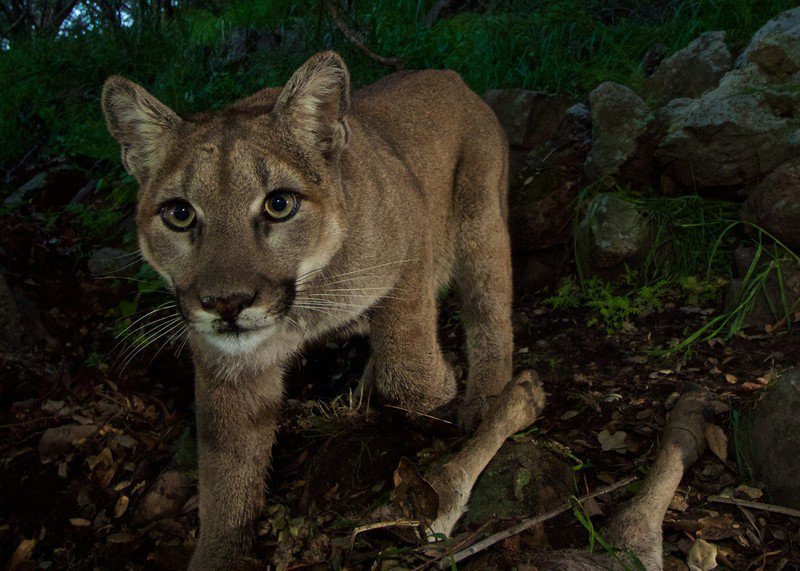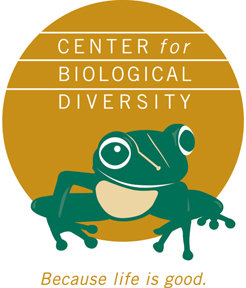
Female mountain lion, P-33, in the Santa Monica Mountains. Photo by National Park Service.
Moratorium on Dangerous Rodenticides Heads to Governor’s Desk
September 2, 2020 - SACRAMENTO, Calif.— The California legislature has passed a bill that would place a moratorium on super-toxic rodenticides until state agencies can develop better  safeguards to protect wildlife from the dangerous, long-lasting poisons.
safeguards to protect wildlife from the dangerous, long-lasting poisons.
The California Ecosystems Protection Act (A.B. 1788) was passed late Monday just before the end of the session. The bill now goes to Gov. Gavin Newsom.
“Reducing the threat from super-toxic rat poisons would be a big step toward protecting some of California’s most imperiled wildlife, like mountain lions and the San Joaquin kit fox,” said Jonathan Evans, environmental health legal director for the Center for Biological Diversity. “We hope Gov. Newsom signs this bill to provide safe, cost-effective options that protect both public health and our wildlife.”
A 2018 state analysis documented highly toxic rat poisons, known as second-generation anticoagulant rodenticides, in more than 85% of tested mountain lions, bobcats and protected Pacific fishers, prompting state regulators to open a new evaluation of whether to further restrict or ban the powerful, toxic chemicals.
“Second-generation anticoagulant rodenticides are the worst of the worst poisons as they do the most damage to non-target wildlife,” said Jennifer Hauge, legislative affairs manager for the Animal Legal Defense Fund. “As a result of secondary poisoning, nontarget species can suffer from internal bleeding resulting in death.”
The bill targets only the most dangerous rodenticides and includes exceptions to allow their use to protect public health. More than 175 less-toxic rat poison products would still be fully available for use under the bill.
“California can lead the nation, yet again, on protecting wildlife and the environment by enacting this groundbreaking legislation, which many other states with similar problems are watching closely,” said Lisa Owens Viani, director of Raptors Are The Solution.
A.B. 1788 was introduced by Assemblymember Richard Bloom (D-Santa Monica) and cosponsored by the Animal Legal Defense Fund, Center for Biological Diversity and Raptors are the Solution.
Background
Anticoagulant rodenticides interfere with blood clotting, resulting in uncontrollable bleeding that leads to death. Super-toxic poisons include the second-generation anticoagulants brodifacoum, bromadiolone, difethialone and difenacoum, which are especially hazardous and persist for a long time in body tissues. Predators and scavengers that feed on poisoned rodents are frequently poisoned by these slow-acting rodenticides.
The harm caused by second-generation anticoagulant rodenticides in California is well documented. More than 70% of wildlife tested in California in recent years has been exposed to dangerous rodenticides, including more than 25 different species.
Effective, affordable alternatives to rat poison include rodent-proofing homes and farms by sealing cracks and crevices and eliminating food sources; providing owl boxes in rural areas to encourage natural predation; and using traps that don’t involve these highly toxic chemicals.
For more information on nontoxic rodent-control methods, visit SafeRodentControl.org.
The Center for Biological Diversity is a national, nonprofit conservation organization with more than 1.7 million members and online activists dedicated to the protection of endangered species and wild places.
The Animal Legal Defense Fund works to protect the lives and advance the interests of animals through the legal system with high-impact lawsuits; free legal assistance to prosecutors; legislative advocacy; and resources for law students and professionals to advance the field of animal law. aldf.org.
Raptors Are The Solution is a nonprofit project of Earth Island Institute based in Berkeley, CA, dedicated to educating the public about the ecological role of birds of prey and other predatory wildlife and the danger they face from rodenticides.
Source: Center for Biological Diversity








